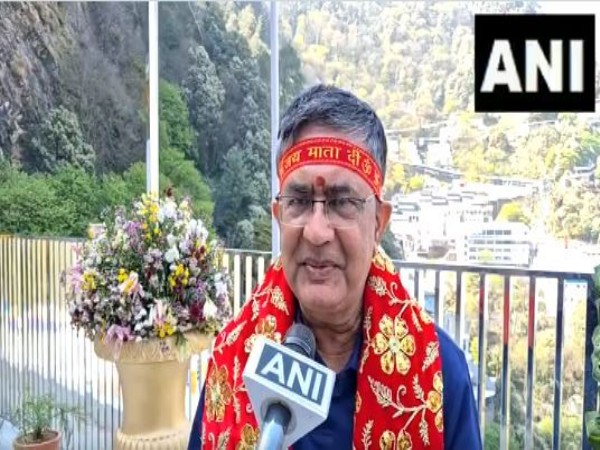K'taka: Covid test results, BU code generation within 7 hours, says Deputy CM
May 05, 2021

Bengaluru (Karnataka) [India], May 6 : Providing results of COVID tests within 7 hours is being done in KC General Hospital in Malleshwaram and this will be expanded to entire state, Deputy Chief Minister and State COVID ministerial Task Force Head, Dr CN Ashwatha Narayana, said on Wednesday.
Speaking to reporters after reviewing the COVID situation in Malleshwaram, he said, providing reports of COVID tests and Bengaluru Urban (BU) code number generation will be made to happen within 7 hours.
As per the procedure, once the laboratories upload the positive test result on ICMR portal, it should generate the Bengaluru Urban (BU) code number.
"Earlier it used to take 72 hours to get results after the reach of samples to the laboratory. Now this has been reduced to 7 hours. This enables early detection of the infection and to start treatment before the infection advances," Narayana explained.
He further said that measures will be taken to do the blood tests of those who are in home isolation, adding that blood test will help to know the condition of the infected patient and to find out the inflammatory markers.
Stating that oxygen produced in the state will be completely utilised within the state itself, he informed that currently, there is supply of 850 MTs of oxygen to the state and if the demand for oxygen increases further, arrangements will be done to get it from other states or from other countries.
On antiviral drug remdesivir, he said:"It will be useful only in the primary stage of the infection. But, when the infection is more this antiviral is of no use."
"About 30-40 per cent of the infected are getting admitted to hospitals even though they do not require, because of anxiety. So steps will be taken to reduce the anxiety of the patients. Hospitals are told to keep enough stock of consumables like masks, PPE kits, oximeters, medicines etc."
With regard to a query about the situation in Ramanagara, he said, that oxygen storage facility and an oxygen generation plant of 1000 liters/minute would be set up in the district hospital. "Also, discussion is in progress about establishing oxygen generation plants in four other taluk hospitals of the district with the aid of CSR funds. This would resolve the dependency of hospitals on oxygen suppliers and manufacturers."
As of now, the number of active cases in the district is around 3000. Generally, 10 per cent of this, i.e. about 300 patients need hospitalisation, whereas the district is equipped to handle 30 per cent of the existing number of cases, Narayana, who is also the district in-charge minister, clarified.

















